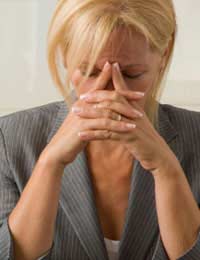Uglyism and Discrimination

Uglyism, a form of discrimination based on people’s physical beauty, is a type of thinking and behaving that is widespread yet rarely acknowledged in our society. Treating others differently due to appearance is just as shameful as discriminating against others based on race, religion or gender, but rarely is uglyism even named much less challenged. Understanding the basis of uglyism, how prevalent it is, the effects it can have on those involved and how to confront it are all important steps towards ending uglyism for good.
Basis of Uglyism
Uglyism is predicated on a belief that somehow more attractive people are better people, and people with less obvious beauty are less worthy or even evil. Those who engage in uglyism treat more traditionally attract people better, with more respect and dignity, than they do people who are plain or otherwise less traditionally attractive. But what is ugly? Generally society believes those who do not meet the mainstream standards of beauty, for example due to perceived flaws in features such as eyes, nose, teeth, hair or skin, are less attractive. With no standard definition of beauty, however, anyone may be subject to uglyism at any point in their life.Prevalence of Uglyism
Sociological studies conducted in North America have concluded that uglyism is perhaps society’s most “invisible prejudice”. This means it is more prevalent in Western society than prejudices such as racism and sexism which are talked about much more easily. Unfortunately, without uglyism being acknowledged in society it means that others may not take it seriously and that no education programmes about it can be undertaken.Effects of Uglyism
Like any form of discrimination, uglyism effects both those who engage in it and those who are victimised by it, as well as society at large. As long as people who hold prejudices about physical beauty it means that:- Individuals with traditional beauty will be valued more highly.
- Traditionally attractive people will become better socialised due to more social interactions.
- Victims will be viewed as less intelligent, sexy, kind and trustworthy.
- Victims will be passed over for employment, promotions and other career advancement.
- Victims will experience emotional distress, anxiety and even fear.
- Everyone will be required to meet conventional standards of beauty to receive better treatment.
- Offenders will continue to contribute to an unequal, unjust society.
- No one will be free from discrimination and prejudice.
Confronting Uglyism in Society
Confronting uglyism in society is not an easy thing for individuals who are faced with disbelief at every turn. Refusing to purchase magazines which support narrow views of beauty, boycotting television programmes and websites dedicated to beauty of fashion “makeovers”, lodging complaints when you witness uglyism in action and challenging jokes, gossip or taunts about personal appearance or beauty are all easy steps confronting uglyism. Also, educating others about the harm of uglyism, the appeal of many different types of beauty, and the disconnect between physical beauty and true worth should all help spread the message that uglyism as a form of discrimination and prejudice is unacceptable.Uglyism, or treating people different due to perceived physical beauty, is a lesser acknowledged form of discrimination which nevertheless permeates society. Understanding the thoughts behind uglyism, its prevalence in our world, the effects it can have on everyone and how you can confront it should all help you challenge and eventually end uglyism in your community.


Re: Questionnaire: Experienced Discrimination School?
Good day! I am Reynalyn Joy A. Taylo, currently our research paper for Grade 12 as a HUMSS student.…
Re: Questionnaire: Experienced Discrimination School?
Good day! I am Reynalyn Joy A. Taylo, currently our research paper for Grade 12 as a HUMSS student.…
Re: Questionnaire: Experienced Discrimination School?
Hello, can we use your questionnaire for our research?
Re: High Profile Discrimination Cases
I work for a car rental company. I was sent to a airport to pick a vehicle up to bring back to my job site. I was stopped at…
Re: Questionnaire: Experienced Discrimination School?
Hello! Can we use these survey questions for our project?
Re: Questionnaire: Experienced Discrimination School?
Hello, can we are asking for your permission to use your questionnaire for our research? Thanks!
Re: Questionnaire: Experienced Discrimination School?
We are asking for your permission if we could copy some of your questionnaire for our research ?? Thank…
Re: Questionnaire: Experienced Discrimination School?
hello Good morning my name is Mico john Hernander 17 years old from manila. Im so happy to make comment…
Re: Your Rights in the Workplace
Senior management.. often scream and shout at the team. Things not investigated before the blame game starts. Staff behaviours…
Re: Your Rights in the Workplace
I work at M&S Distribution Centre in the East Midlands and only started working there since the beginning of May 2019, previously…